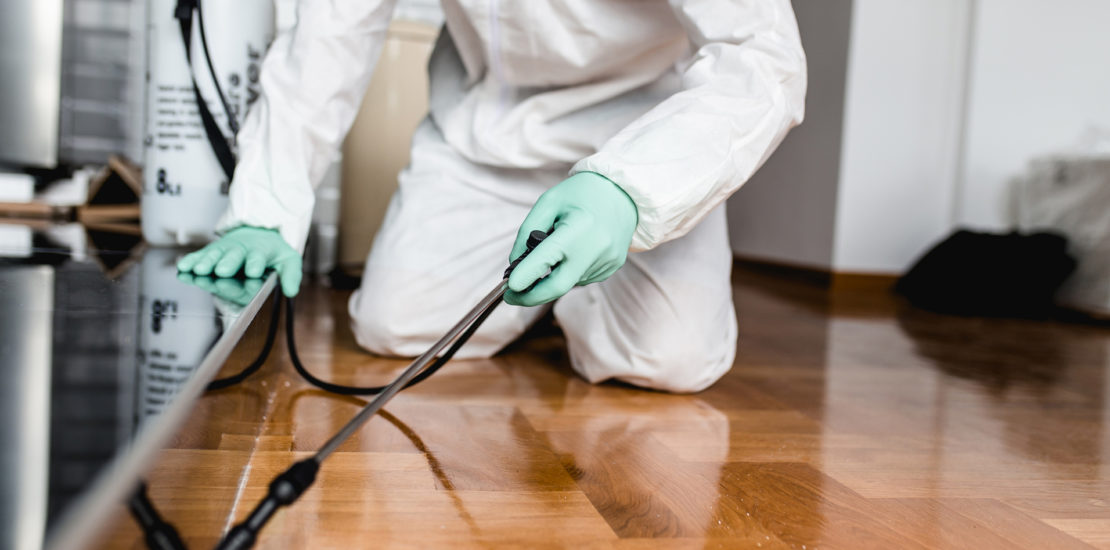Pest Control Clovis Solutions: Specialist Solutions at Your Doorstep
Wiki Article
Recognizing the Various Techniques to Insect Control: A Comprehensive Overview

Natural Bug Control Techniques
Using environment-friendly methods such as companion planting and organic parasite control is necessary for effectively managing insects in farming setups. Buddy planting entails growing different plants in distance to deter parasites, improve nutrient uptake, and enhance overall plant health.Organic insect control involves presenting natural killers or virus to control pest populaces. Ladybugs, for example, feed on aphids, regulating their numbers without the need for chemical pesticides. An additional example is using Bacillus thuringiensis (Bt), a microorganism that targets particular insect pests while being harmless to human beings, animals, and beneficial bugs.
These environmentally friendly approaches not only lower the reliance on artificial pesticides however additionally assist maintain biodiversity and soil health and wellness. By incorporating all-natural pest control methods right into agricultural techniques, farmers can achieve sustainable parasite management while decreasing negative influence on the setting.

Chemical Parasite Control Solutions
Along with all-natural pest control methods, the utilization of chemical pest control remedies plays a considerable duty in efficiently handling pest populations in farming settings. Chemical pest control services are developed to target details parasites that may trigger comprehensive damages to plants. These remedies often include synthetic pesticides that are developed to eliminate bugs promptly and successfully.Among the key advantages of chemical pest control remedies is their performance in regulating parasite problems on a huge range. Farmers can use these options making use of different techniques such as spraying, fumigation, or seed treatment to protect their plants from unsafe pests, weeds, and conditions. Furthermore, chemical bug control services are relatively easy to use and can give fast results, helping farmers safeguard their returns and lessen economic losses.
However, it is necessary to utilize chemical insect control remedies judiciously to reduce potential unfavorable influences on the setting, non-target organisms, and human wellness. Correct application techniques, adherence to safety and security guidelines, and regular surveillance are vital to guarantee the liable use of chemical bug control solutions in farming practices.
Organic Pest Control Approaches
Biological insect control approaches take advantage of all-natural killers or pathogens to manage insect populaces in agricultural settings efficiently. One typical organic control technique is the intro of all-natural adversaries, such as ladybugs or parasitical wasps, to target specific insects.An additional organic control approach entails making use of pathogens like bacteria, infections, news or fungis to infect and kill insects. These microbial agents can be sprayed on plants or presented right into the soil to fight various pests without damaging advantageous insects or various other wild animals. Furthermore, the usage of pheromones to disrupt the breeding patterns of parasites is an additional effective biological control technique. By hindering their recreation, this approach assists to decrease pest populaces without the requirement for chemical intervention. Overall, biological insect control approaches supply a lasting and targeted service to pest management in farming.
Integrated Parasite Management (IPM)
Integrated Insect Monitoring (IPM) is an extensive approach that integrates various pest control strategies to properly manage and lessen pest populations in agricultural systems. IPM concentrates on long-term prevention of parasites through a combination of organic, cultural, physical, and chemical control approaches. By integrating these different techniques, IPM intends to decrease dependence on chemical pesticides, decrease environmental effect, and advertise lasting parasite monitoring techniques.
One key element of IPM is making use of organic controls such as natural predators, parasites, and virus to control parasite populations. This technique uses the power of nature to maintain a balance between insects and their all-natural adversaries without creating injury to the setting.
Additionally, IPM includes cultural methods like plant turning, environment, and hygiene adjustment to develop negative problems for parasites and interrupt their life process. Physical controls such as barriers, traps, and mulches are likewise used to stop bug invasions.
Mechanical and Physical Insect Control Techniques
Utilizing non-chemical methods, such as physical and mechanical bug control strategies, is a crucial facet of thorough bug administration techniques, building on the structure of Integrated Bug Administration's holistic approach. Mechanical parasite control includes the use of physical barriers or catches to avoid pests from accessing and harming crops or structures. This approach can include strategies like setting up screens on home windows, utilizing row covers in agriculture, or using sticky traps to capture bugs.Physical pest control techniques, on the other hand, emphasis on straight removing insects via physical ways. Utilizing warmth treatments to remove bed bugs or vacuuming up bugs like spiders or ants can be effective means to take care of infestations without the usage of chemicals. By incorporating these mechanical and physical insect control techniques right into an Integrated Bug Monitoring strategy, professionals and people can minimize dependence on chemicals while still properly handling pest populaces and decreasing damage.
Final Thought

In enhancement to all-natural bug control approaches, the use of chemical insect control solutions plays a substantial function in effectively taking care of pest populations in farming atmospheres.One of the essential benefits of chemical insect control solutions is their performance in managing parasite invasions on a large range.Integrated Pest Monitoring (IPM) is an extensive approach that incorporates various parasite control techniques to properly handle and decrease pest populations in farming systems.Utilizing non-chemical techniques, such as mechanical and physical bug control techniques, is an important facet of extensive parasite management methods, building upon the foundation of Integrated Bug Management's alternative strategy. By incorporating these physical and mechanical parasite control methods right into an Integrated Pest Management strategy, experts and people can lower reliance on pesticides while still successfully taking care of pest populaces and minimizing damage.
Report this wiki page